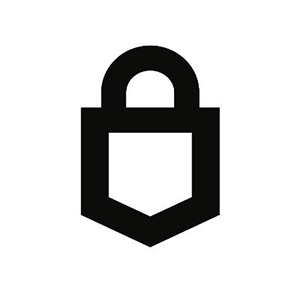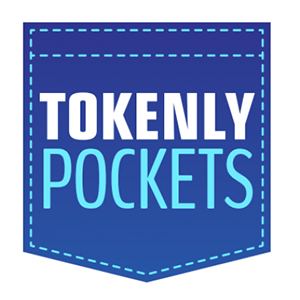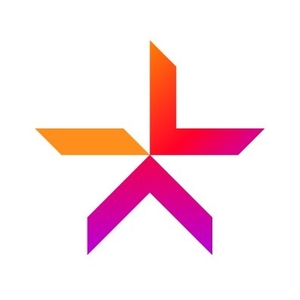Crypto wallet. If you’re new to the world of cryptocurrencies , you’ve probably heard of cryptocurrency wallets . In this article, we’ll explain whatcryptocurrency wallets are, how they work, and how to choose the best one for your needs.
What Are Cryptocurrency Wallets?
Cryptocurrency wallets are essential tools—they’re apps or physical devices specifically designed to help you store, send, and receive your digital currencies. Think of them less like a traditional leather wallet for cash and more like a secure digital interface to your bank account. Instead of holding physical money, they hold the cryptographic keys that prove you own your cryptocurrencies, like Bitcoin, Ethereum, Litecoin, and countless others.
These keys are critical because your actual cryptocurrencies don’t sit «inside» the wallet in the way cash sits in your pocket. Instead, they reside on the blockchain, which is a massive, public, and secure record of all transactions. Your wallet simply provides you with the unique keys (a public address and a private key) that allow you to access, manage, and transact with your funds on that blockchain. This means your wallet acts as your personal gateway to your digital wealth, enabling you to securely interact with the decentralized world of cryptocurrencies.
What are the types of cryptocurrency wallets?
There are several types of crypto wallets , each with its own advantages and disadvantages. Below are the four main types:
- Desktop wallets: These are software applications that you download and install on your computer. They are secure and offer a high degree of control over your private keys.
- Mobile wallets: These are apps that you download and install on your smartphone. They’re convenient and easy to use, but less secure than desktop wallets .
- Hardware wallets: These are physical devices that connect to your computer or smartphone. They’re highly secure and designed to protect your private keys from hackers.
- Online wallets: These are wallets accessed via the web. They’re easy to use, but less secure than hardware or desktop wallets .
How to choose the best cryptocurrency wallet?
Crypto wallet
When choosing the best cryptocurrency wallet for your needs, you should consider several factors, including:
- Security level
- Support for specific cryptocurrencies
- Ease of use
- Support for specific operating systems
- Transaction fees
- Additional features such as debit card support or the ability to exchange cryptocurrencies directly from the wallet .
Cryptocurrency Wallets
The term Wallet refers to a purse . In this case, this virtual wallet stores our digital currencies.
Using these tools is essential when managing our cryptocurrencies. They’re the tools users use to store and manage their cryptocurrencies.
Cryptocurrency wallets allow you to check your balance, trade cryptocurrencies, or view executed transactions. Unlike banks, wallets offer security by allowing users to sign transactions with full control of their private keys .
How Do Cryptocurrency Wallets Work?
When you hear about cryptocurrency wallets, it’s easy to picture a traditional leather wallet, but they’re quite different. Instead of holding your actual money, a crypto wallet is a special app or device that holds the secret codes – called cryptographic keys – that prove you own your digital money, like Bitcoin or Ethereum. Think of it like this: your money isn’t inside the wallet; it’s recorded on a massive, secure digital ledger called a blockchain. Your wallet simply gives you the unique «keys» to access and manage your funds on that ledger.
Imagine the blockchain as a giant, public, and always-updated record book, visible to everyone in the world. Every time someone sends or receives cryptocurrency, that transaction is written down in this book. Your wallet doesn’t actually store your crypto; it stores the special keys that let you «sign» your name next to an entry in this record book, proving that you’re the one who can spend or move your funds. This system is incredibly secure because it uses advanced encryption techniques to protect your information and ensure that only you can authorize transactions with your digital money.
The Magic of Keys: Public and Private
At the heart of every crypto wallet are two very important keys:
-
The Public Key: This is like your bank account number or your email address. You can share your public key (or the wallet address it generates) with anyone without worrying about your money being stolen. People use your public key to send you cryptocurrency, just like they’d use your bank account number to deposit money. It’s safe to give out. Your public key also allows anyone to view the balance of your wallet on the public blockchain, but they can’t touch your funds. This transparency is a core feature of how cryptocurrencies operate, allowing everyone to see transactions while keeping the owners’ identities private (unless they choose to reveal them).
-
The Private Key: This is the most important secret you must protect. Think of your private key as the actual password to your bank account, or the unique PIN for your debit card – but even more powerful! Anyone who has your private key has complete control over the cryptocurrencies linked to it. They can spend your money, transfer it, or do anything they want with it, without your permission. That’s why it’s absolutely crucial that you never, ever share your private key with anyone. Your private key is what truly proves your ownership and gives you the exclusive right to move your digital assets. When you «send» crypto, your wallet uses your private key to digitally «sign» the transaction, proving to the blockchain that you, the owner, authorized it.
How Transactions Happen
When you want to send cryptocurrency to someone, your wallet doesn’t physically move digital coins. Instead, it creates a message for the blockchain that says, «I, the owner of this public key (and here’s my private key’s digital signature to prove it), want to send X amount of cryptocurrency to this other public key.» This message is then encrypted and sent out to the vast network of computers (called nodes) that operate the blockchain around the world. These nodes verify the transaction using your public and private keys, ensuring everything is legitimate and that you truly own the funds. Once verified, the transaction is added to the blockchain’s permanent record, and the balance associated with the recipient’s public key increases, while yours decreases.
This entire process happens incredibly fast, often within seconds or minutes, without any banks, governments, or other middlemen involved. It’s a direct, secure, and transparent way to move value, all thanks to the clever use of these cryptographic keys within your cryptocurrency wallet. Your wallet is your personal command center for interacting with this exciting new world of digital money!
Your Guide to Exploring Crypto (For Everyone!)
Understanding the world of cryptocurrencies, although seemingly complex, can be simplified into simple steps. If you want to explore the world of cryptocurrencies, our team of editors has created a simple guide to help you get started:
Step 1: Learn the Basics
- Start with the «What»: Begin by understanding what cryptocurrencies are at a fundamental level. Think of them as digital money that exists only online.
- The Blockchain: Learn about the «blockchain» as the underlying technology. Imagine it as a super secure, public digital ledger or record book where all crypto transactions are recorded. It’s like a transparent notebook that everyone can see but no one can erase from.
- Why It Matters: Understand the core ideas behind crypto: it’s often decentralized (meaning no single company or government controls it), transparent (everyone can see the transactions), and potentially faster and cheaper for sending money around the world.
Step 2: Understand Crypto Wallets (Your Digital Bank)
- What They Are: Grasp that a «crypto wallet» isn’t where your money physically sits. It’s a special app or device that holds secret codes (your keys) that prove you own your digital money.
- Public Key (Your Address): This is like your email address or bank account number. You share it so people can send you crypto. It’s safe to give out.
- Private Key (Your Secret Password): This is the ultimate secret code. It’s like your super-secret PIN or password that lets you spend your money. NEVER share this key with anyone. Keeping it safe is the most important thing you can do for your crypto security.
Step 3: Getting Your First Crypto
- Buying Crypto: Learn where you can buy cryptocurrencies. These are typically online platforms called «exchanges» (like digital currency markets). You use regular money (like dollars or euros) to buy crypto there.
- Sending to Your Wallet: Once you buy crypto on an exchange, you’ll want to send it to your personal crypto wallet for better security and control. You’ll use your wallet’s public address to receive it.
Step 4: Staying Safe
- Protect Your Private Key: This cannot be stressed enough. Write it down, store it securely offline, and never share it. If you lose it, you lose your crypto.
- Use Strong Passwords: For any online accounts (like exchanges), use unique, strong passwords and enable two-factor authentication (2FA) for extra security.
- Beware of Scams: The crypto world has scams. Be very cautious of anyone asking for your private key, promising guaranteed returns, or pushing you to invest quickly. If it sounds too good to be true, it probably is.
Step 5: Keep Learning
- Start Small: Don’t invest a lot of money when you’re first starting. Begin with a small amount you’re comfortable losing.
- Read Reputable News: Follow well-known crypto news websites and educational resources.
- Ask Questions: Don’t be afraid to ask questions in beginner-friendly online communities, but always double-check information.
By taking these steps, you can confidently begin to explore and understand the exciting world of cryptocurrency, making it accessible for everyone.
Are crypto wallets really safe?
One of the most important aspects and the goal of a crypto wallet is its security. Since they are digital files, no two addresses are identical. This gives the user the security of knowing that there’s no way another user can interfere with their funds, and vice versa.
When you first configure them, they generate a «seed.» All keys and addresses are then generated from this seed. It will later be used to restore and recover the wallet and our funds in case of damage or loss of the device. These seeds are a type of code represented by mnemonics, usually in English.
Types of cryptocurrency wallets
There are different types of cryptocurrency wallets , although we can divide them into two broad categories:
- Hot wallet : 100% online wallets, which can be applications or even installed as browser extensions.
- Cold wallet : Physical wallets (hardware) whose common premise is that they work without an internet connection and are physical devices, making them the safest option.
Conclusion
Cryptocurrency wallets are an important tool for anyone looking to use cryptocurrency . When choosing a cryptocurrency wallet , it’s essential to consider the level of security, support for specific cryptocurrencies, ease of use, and other features that are important to you. With a secure and reliable cryptocurrency wallet , you can store, send, and receive cryptocurrency with confidence.
Always remember to keep your private keys secure and never share them with anyone. Also, be sure to follow online security best practices, such as keeping your software up-to-date and enabling two-factor authentication whenever possible.
FAQs
- Can I have multiple cryptocurrency wallets ? Yes, you can have multiple cryptocurrency wallets to store different types of cryptocurrencies or to diversify your assets.
- How can I back up my cryptocurrency wallet ? You can back up your cryptocurrency wallet by backing up your private keys to a secure location, such as an external hard drive or cold storage device.
- What should I do if I lose my cryptocurrency wallet ? If you lose your cryptocurrency wallet , you may permanently lose access to your funds. That’s why it’s important to back up your private keys and keep them in a safe place.
- Can I exchange cryptocurrencies directly from my wallet ? Some cryptocurrency wallets allow you to exchange cryptocurrencies directly from the app. However, keep in mind that this may have higher fees than online exchanges.
- How can I tell if my cryptocurrency wallet is secure ? To ensure your cryptocurrency wallet is secure, you should research the company behind the app or device, read reviews, and seek security recommendations from the cryptocurrency community .





























